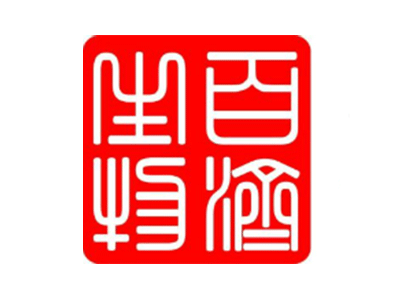BeiGene(06160)
Search documents
百济神州:关于2026年度经营业绩预测的公告
Zheng Quan Ri Bao· 2026-02-26 13:41
(文章来源:证券日报) 证券日报网讯 2月26日,百济神州发布公告称,公司预计2026年中国企业会计准则下营业收入介于436 亿元至450亿元之间,毛利率处于80%区间高位,研发费用、销售及管理费用合计介于333亿元至348亿 元之间,营业收入扣除经调整的经营成本费用后介于98亿元至105亿元之间。 ...
百济神州:2025年度业绩快报公告
Zheng Quan Ri Bao· 2026-02-26 13:40
证券日报网讯 2月26日,百济神州发布公告称,公司2025年实现营业总收入382.05亿元,同比增长 40.4%;归属于母公司所有者的净利润14.22亿元,实现扭亏为盈。 (文章来源:证券日报) ...
市值跌破3000亿的百济神州首次全年盈利,但拳头产品收入增长放缓
Di Yi Cai Jing· 2026-02-26 13:14
百悦泽收入虽然再创新高,但增速在放缓。 2月26日晚间,百济神州也发布了2026年业绩预测,公司预测2026年营业收入将介于人民币436亿元至 450亿元之间,较2025年营收的增速在14.12%与17.79%之间。 近年来,百济神州试图摆脱对百悦泽的收入依赖,进一步巩固在血液瘤领域的优势,公司有多款处于临 床后期阶段的基石性产品临近商业化。 如另外一款产品,即百悦达(索托克拉,BCL2抑制剂)在中国取得全球首次上市许可申请批准,用于 既往接受过至少两种系统性治疗(含BTK抑制剂)的R/R MCL(复发/难治性套细胞淋巴瘤)成人患 百悦泽是全球获批适应证最广泛的BTK抑制剂。目前,百悦泽已在全球超过75个市场获批。 百悦泽优势主要在血液瘤领域,销售放缓背后,其实跟美国市场表现有关,虽然美国仍是这款药物最大 的商业化市场,贡献的销售额达到202.06亿元,同比增长45.5%,但这样的销售增速低于2024年107.5% 的增速。 作为百济神州的收入第二高产品,PD-1单抗百泽安(替雷利珠单抗)已在全球超过50个市场获批, 2025年全球销售额达52.97亿元,同比增长18.6%。 2月26日下午临近收盘时,百济神 ...
百济神州2025年总收入382.05亿元 归属于母公司所有者的净利润达14.22亿元
Zheng Quan Ri Bao Wang· 2026-02-26 13:12
其中,百悦泽 收入再创新高,全球销售额达280.67亿元,同比增长48.8%。按地区来看,在美国市场, 百悦泽 的年销售额达202.06亿元,同比增长45.5%。在欧洲,百悦泽 的年销售额为42.65亿元,同比增 长66.4%。在中国,百悦泽 的年销售额为24.72亿元,同比增长33.1%。 公告显示,百悦泽 是全球获批适应症最广泛的BTK抑制剂。目前,百悦泽 已在全球超过75个市场获 批。在2025年美国血液学会(ASH)年会上,百济神州公布3期SEQUOIA试验六年随访数据以及 ALPINE试验的长期结果,进一步验证百悦泽 在治疗初治及R/RCLL/SLL成人患者时具有持续的获益。 2026年上半年,百济神州预计将对百悦泽 联合利妥昔单抗对比苯达莫司汀联合利妥昔单抗用于套细胞 淋巴瘤成人患者一线治疗的3期试验MANGROVE进行期中分析。 另一款核心产品百泽安 的销售额亦稳步增长,2025年全球销售额达52.97亿元,同比增长18.6%。目 前,百泽安 已在全球超过50个市场获批,患者可及性持续提升。公司预计将于2026年上半年在美国和 中国递交百泽安 联合百赫安 (泽尼达妥单抗)用于HER2阳性胃食管腺 ...
BeiGene(BGNE) - 2025 Q4 - Earnings Call Presentation
2026-02-26 13:00
Q4 and Full Year 2025 Results Conference call and webcast for investors and analysts FEBRUARY 26, 2026 Disclosures Certain statements contained in this presentation and in the accompanying oral presentation, other than statements of fact that are independently verifiable at the date hereof, constitute forward looking statements. Examples of such forward-looking statements include statements regarding BeOne's research, discovery, preclinical and clinical programs and plans, including proof of concept timing, ...
百济神州Q4营收同比增长33%,全年扭亏为盈,百悦泽单季狂揽11亿创历史新高|财报见闻
Hua Er Jie Jian Wen· 2026-02-26 12:55
百济神州2月26日公布2025年第四季度及全年财务业绩,跨越盈亏平衡点,告别了长达数年的"烧钱"时代。 全年总收入达53.43亿美元,同比增长40%;第四季度总收入15亿美元,同比增长33%。 展望2026年,公司给出62亿至64亿美元的总收入指引,同比增幅约20%,预期GAAP经营利润7亿至8亿美元。索托克拉等后期血液肿瘤管线产品临近商业 化,将为公司注入下一阶段增长动能。 核心产品:百悦泽称霸赛道,百泽安稳健拓展 百悦泽依托广泛监管批准和深厚临床数据壁垒,在BTK抑制剂市场建立绝对主导地位。ASH年会公布的SEQUOIA试验六年随访及ALPINE长期随访数据,进 一步验证其在初治及复发难治CLL/SLL患者中的持续获益,领先优势持续巩固。 2025年全年GAAP净利润2.87亿美元,一举扭转2024年净亏损6.45亿美元的局面,实现历史性盈利。 | | | 第四季度 | | | | | | --- | --- | --- | --- | --- | --- | --- | | | 2025年 | | 2024年 | 愛動(%) | | 2025年 | | 產品收入 | S 1,476,442 | S | ...
百济神州(688235) - 港股公告:百济神州有限公司截至2025年12月31日止三个月未经审核业绩及2025全年经审核业绩以及业务进展


2026-02-26 12:30
內幕消息 百濟神州有限公司 截至2025年12月31日止三個月未經審核業績 及截至2025年12月31日止全年經審核業績以及 業務進展 香港交易及結算所有限公司及香港聯合交易所有限公司對本公告的內容概不負責,對其準確性 或完整性亦不發表任何聲明,並明確表示概不就因本公告全部或任何部分內容而產生或因依賴 該等內容而引致的任何損失承擔任何責任。 BeOne Medicines Ltd. 百濟神州有限公司 (根據瑞士法律註冊成立的公司) (股份代號:06160) 本公告乃根據香港聯合交易所有限公司證券上市規則(「上市規則」)第13.09條及 根據證券及期貨條例(香港法例第571章)第XIVA部而刊發。 百濟神州有限公司(「本公司」或「百濟神州」)欣然公佈其截至2025年12月31日 止第四季度的未經審核綜合財務業績及截至2025年12月31日止全年的經審核綜 合財務業績以及業務進展。 本公司欣然公佈本公司及其附屬公司截至2025年12月31日第四季度未經審核綜合 財務業績(「季度業績」)及截至2025年12月31日止全年經審核綜合財務業績(「全 年業績」)以及關鍵業務亮點和2026年財務指引(「業務進展」)。季度業 ...
百济神州(688235) - 美股公告:年度报告10-K表格


2026-02-26 12:30
目录 美国 证券交易委员会 Washington, D.C. 20549 表格 10-K (选择一项) ☒ 根据 1934 年证券交易法第 13 条或第 15 条(d)节的年度报告 截至 2025 年 12 月 31 日的财政年度 或 ☐ 根据 1934 年证券交易法第 13 条或第 15 条(d)节的过渡报告 过渡期从 至 交易委员会递交编号:001-37686 BEONE MEDICINES LTD. 百济神州有限公司 (注册人章程载明的确切名称) | 各类别名称 | 交易代码 | 各证券交易所名称 | | --- | --- | --- | | 每股美国存托股份相当于 13 股普通股,每股面值 0.0001 美元 | ONC | 纳斯达克全球精选市场 | | 普通股,每股面值 0.0001 美元* | 06160 | 香港联合交易所有限公司 | (注册成立或组建的州或其他司法管辖区) (美国国家税务局雇主身份识别号码) 瑞士 98-1209416 c/o BeOne Medicines I GmbH 94 Aeschengraben 27 Basel 4051 瑞士 (主要行政办事处地址,包括邮政编码) ...
百济神州2025年净利14.22亿元,同比扭亏
Bei Jing Shang Bao· 2026-02-26 12:20
百济神州表示,报告期内,公司营业收入增加40.4%,主要得益于百悦泽,以及安进公司授权产品和百 泽安的销售增长。公司实现盈利主要得益于产品收入增长和费用管理推动的经营效率提升。 北京商报讯(记者 丁宁)2月26日晚间,百济神州(688235)发布2025年度业绩快报显示,公司2025年 实现营业收入382.05亿元,同比增长40.4%;归属净利润约为14.22亿元,同比扭亏。 ...
百济神州(06160) - 海外监管公告


2026-02-26 12:16
茲載列本公司於上海證券交易所網站刊發的《百濟神州有限公司自願披露關於 2026年度經營業績預測的公告》,僅供參閱。 承董事會命 百濟神州有限公司 主席 歐雷強先生 香港,2026年2月26日 香港交易及結算所有限公司及香港聯合交易所有限公司對本公告的內容概不負責,對其準確性 或完整性亦不發表任何聲明,並明確表示概不就因本公告全部或任何部分內容而產生或因依賴 該等內容而引致的任何損失承擔任何責任。 BeOne Medicines Ltd. 百濟神州有限公司 (根據瑞士法律註冊成立的公司) (股份代號:06160) 海外監管公告 本公告乃百濟神州有限公司(BeOne Medicines Ltd., 「本公司」)根據香港聯合交易 所有限公司證券上市規則第13.10B條作出。 於本公告日期,本公司董事會包括主席兼執行董事歐雷強先生、非執 行董事王曉東博士,以及獨立非執行董事 Olivier Brandicourt 博士、 Margaret Han Dugan博士、Michael Goller先生、Anthony C. Hooper先生、 Ranjeev Krishana先生、Alessandro Riva博士、Cor ...

